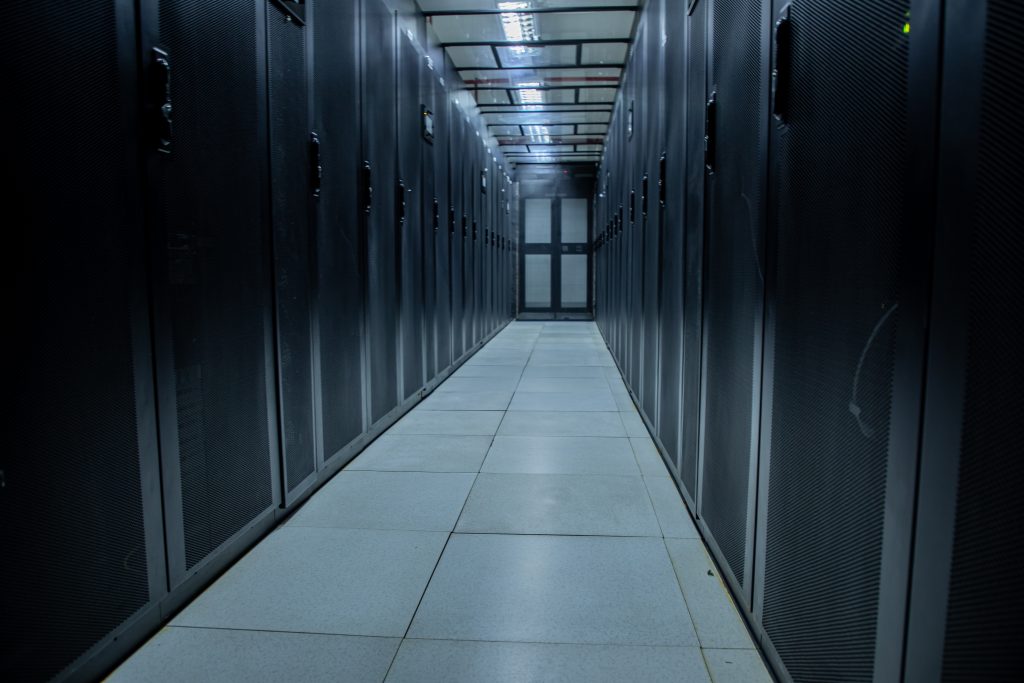Data Centers and Cloud Solutions: How to keep your data safe and secure in a digital world

In today’s digital age, data has become the backbone of every organization, and ensuring its safe and secure storage is of paramount importance. With the increasing reliance on technology, businesses require robust infrastructures to house and manage their data. Data centers and cloud solutions have emerged as the go-to options for organizations seeking efficient and secure data management. In a recent webinar hosted by SmartInfraco, industry experts – Michael Kwablah, Alfred Nkrow, and Maxwell Ankomah Appiah– shed light on “Data Centers and Cloud Solutions: How to keep your data safe and secure in a digital world”, highlighting the role of these technologies in ensuring data safety and flexibility for businesses.
What are Cloud Solutions?
The cloud is a virtual resource that helps businesses to store, organize, and manage data efficiently. It provides on-demand access to computing resources and allows users to store and process data without the need for physical hardware or infrastructure on their premises. Users can access these resources from any device with an internet connection, making it convenient and flexible for businesses and individuals alike. Cloud solutions have become increasingly popular due to their scalability, cost-effectiveness, and ease of use, enabling organizations to streamline operations, enhance collaboration, and improve overall efficiency.
What are Data Centers?
Michael Kwablah, Chief Technology Officer for SmartInfraco, started the webinar session with a comprehensive presentation on Data Centers and Cloud Solutions. He explained that Data centers are simply physical facilities used by organizations to house their critical services, applications, and data. At the core of data centers lies a complex network of routers, switches, firewalls, storage systems, servers, and application-delivery controllers. These physical facilities provide the foundation for enterprise and cloud computing, enabling businesses to securely manage and house their most valuable asset- data. To ensure seamless operations and utmost safety, data centers have a mix of power sources (battery banks, generators, solar, etc.), environmental control systems (computer room air conditioners (CRAC), heating, ventilation, and air conditioning (HVAC) systems and exhaust systems), physical security systems (biometrics and video surveillance systems) and skilled personnel who provide round the clock monitoring of the data center and its systems.
Data Center Tiers and Types
The Uptime Institute, a renowned advisory organization, has categorized data centers into 4 tiers. These tiers define industry standards for data center performance based on levels of redundancy and fault tolerance (Fault tolerance refers to a system’s ability to continue operating despite hardware/software failures or malfunctions). From basic redundancy in Tier I to complete fault tolerance in Tier IV, data centers are designed to meet diverse operational needs.
Data centers also come in various types, tailored to meet the unique requirements of businesses. They include:
- Enterprise Data Centers: These are custom-built and owned by companies to cater to their internal computing needs and are usually housed on the company’s premises.
- Managed Services Data Centers: Third-party service providers deploy, manage, and monitor these data centers, offering businesses a leasing model and access to essential features without the need for upfront investments in equipment.
- Colocation Data Centers: Businesses can rent space within off-premises physical facilities, enjoying the benefits of shared infrastructure, including power supplies, cooling, and security, while managing their own computing hardware.
- Cloud Data Centers: Cloud-based data centers offer leased, hosted infrastructure managed by third-party service providers. Businesses can access resources via the Internet, promoting scalability and cost-effectiveness.
Why Do Data Centers Matter?
Data centers matter because they provide secure and reliable data storage, facilitate scalability and flexibility, support cloud computing and digital transformation and ensure compliance with data governance regulations.
They are equipped with robust physical security measures, fire detection and suppression systems, and strict access controls to safeguard data from theft, unauthorized access, and physical damage. By design, they also have a high level of redundancy to minimize downtime and maximize the availability of uninterrupted services to businesses.
With advanced backup and disaster recovery mechanisms, data centers protect your business against data loss in the event of hardware failures, cyberattacks, or natural disasters. These measures help organizations quickly recover their data and services in case of any unforeseen event.
Should you build your own data center or collocate?
The big question for most businesses is whether they should build their own data center or collocate at an existing data center.
According to Alfred Nkrow, Head of Sales and Commercial at SmartInfraco, building an on-premises data center requires huge capital investments.
Businesses need to critically examine the benefits of investing in their own data center infrastructure vis-à-vis collocating to make an informed decision. Collocating does not require significant capital investments and offers businesses the flexibility to scale up their operations and adapt to changing business demands efficiently.
How can SmartInfraco Help?
In addressing the common objections that businesses have when asked to transition to data centers or cloud solutions, some of which include security concerns, cost considerations, and data migration complexities, Maxwell Ankomah Appiah (Sales Manager, SmartInfraco) highlighted the need for businesses to have the right infrastructure provider since data is the blood that circulates in an organization and needs to be kept safe and secure at all times.
At SmartInfraco, we ensure a smooth transition to our data center or cloud services. We assess your current data storage needs, develop a migration strategy for your physical servers, create an encrypted environment for you, and provide monitoring to ensure that your data is always safe and secure.
As the technical partner of the National Information Technology Agency (NITA) and the Ministry of Communications and Digitalisation (MoCD), SmartInfraco ensures system upgrades and manages the two-world-class national data centers infrastructure in Accra and Kumasi.
Whether you are a small business seeking scalable solutions or an enterprise in need of secure data management, SmartInfraco stands ready to provide reliable and cutting-edge services.
Watch Webinar
To watch our webinar on Data Centers and Cloud Solutions, access the video on LinkedIn or YouTube.
Contact us:
info@smartinfraco.com or 0302771424, 0302953396, 0302953398





